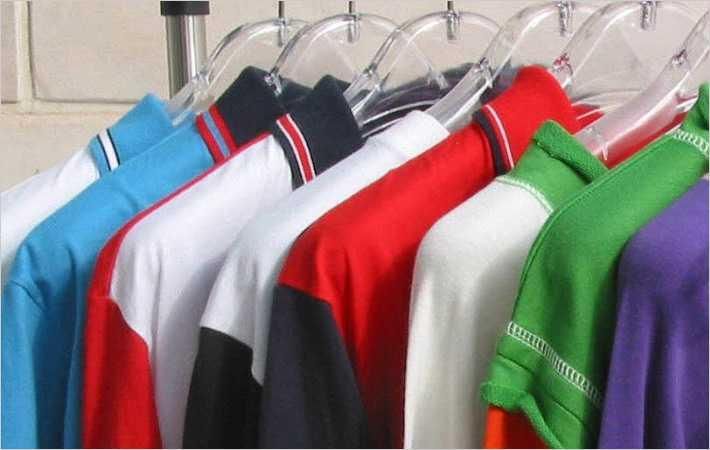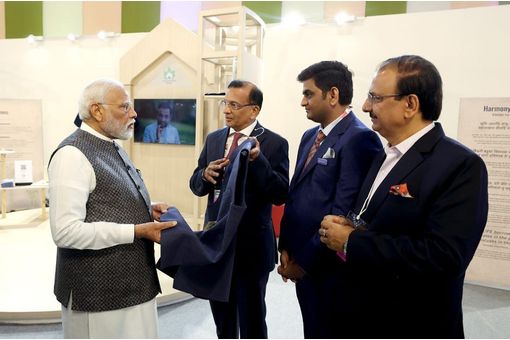Interviews
Companies reveal cost of clothes to appeal millennials
09 Jul '17
3 min read

While most retailers keep details on pricing opaque, a new trend is fast catching up. Companies are now revealing the cost breakdown of their products in what is called transparent pricing, a practice some retailers believe appeals millennials. The practice also addresses ethical concerns for fare wages, according to a report in the Straits Times.
"Price transparency is crucial for clients who want to be sure that everyone was paid a fair wage along the way," Bruno Pieters, founder of Honest By, a clothing and accessories retailer in Belgium, said in the report.
Employing the slogan "the world's first 100 per cent transparent company", it uses a price breakdown so extensive it includes the cost of size labels and hang tags. For instance, a black organic cotton print T-shirt, advertised as vegan, organic and skin-friendly, costs about US$110 (in the European Union, a price that includes the value-added tax) or US$90 (elsewhere, without that tax), the report said.
Pieters said his decision to present his products this way stemmed from his time at a major fashion house. "I saw how the companies I worked for and others would move their production from Belgium or France to Vietnam or India, but would still be asking the same prices they asked before," he was quoted as saying. Other ethical concerns, such as fair wages, also influenced his decision.
The report said that the accessories and leather goods company Oliver Cabell also flaunts the cost breakdown of its products. For example, to make its Kennedy Weekender overnight bag, Oliver Cabell spends US$16.02 (S$22) on canvas, US$11.58 on leather, US$5.68 on lining and 78 US cents on webbing. The zipper costs US$4.27. In total - including manufacturing, transit, duties and other expenses - the company spends US$110.35 to create the bag which it sells online for US$285.
According to the report, Scott Gabrielson, who got the idea for his accessories and leather goods company Oliver Cabell while working on his MBA at Oxford, said the ability to sell directly to consumers online influenced his decision to use transparent pricing. He wanted to show that, by eliminating brick-and-mortar and other built-in costs, clothing sellers could save shoppers money.
One of his biggest challenges, however, has been convincing shoppers that the goods he sells are worth the cost, particularly when all that they have to go on are the pictures on his website, the report said.
Natalie Grillon, founder of Project Just, which collects ethics and sustainability data on fashion brands, believes transparent pricing would give a leg up to retailers. "We've lost the understanding of the value of the clothes we buy. Pricing transparency and stories behind the scenes help the shopper navigate the decision to pay for a more expensive product," Grillon was quoted as saying. (SV)
"Price transparency is crucial for clients who want to be sure that everyone was paid a fair wage along the way," Bruno Pieters, founder of Honest By, a clothing and accessories retailer in Belgium, said in the report.
Employing the slogan "the world's first 100 per cent transparent company", it uses a price breakdown so extensive it includes the cost of size labels and hang tags. For instance, a black organic cotton print T-shirt, advertised as vegan, organic and skin-friendly, costs about US$110 (in the European Union, a price that includes the value-added tax) or US$90 (elsewhere, without that tax), the report said.
Pieters said his decision to present his products this way stemmed from his time at a major fashion house. "I saw how the companies I worked for and others would move their production from Belgium or France to Vietnam or India, but would still be asking the same prices they asked before," he was quoted as saying. Other ethical concerns, such as fair wages, also influenced his decision.
The report said that the accessories and leather goods company Oliver Cabell also flaunts the cost breakdown of its products. For example, to make its Kennedy Weekender overnight bag, Oliver Cabell spends US$16.02 (S$22) on canvas, US$11.58 on leather, US$5.68 on lining and 78 US cents on webbing. The zipper costs US$4.27. In total - including manufacturing, transit, duties and other expenses - the company spends US$110.35 to create the bag which it sells online for US$285.
According to the report, Scott Gabrielson, who got the idea for his accessories and leather goods company Oliver Cabell while working on his MBA at Oxford, said the ability to sell directly to consumers online influenced his decision to use transparent pricing. He wanted to show that, by eliminating brick-and-mortar and other built-in costs, clothing sellers could save shoppers money.
One of his biggest challenges, however, has been convincing shoppers that the goods he sells are worth the cost, particularly when all that they have to go on are the pictures on his website, the report said.
Natalie Grillon, founder of Project Just, which collects ethics and sustainability data on fashion brands, believes transparent pricing would give a leg up to retailers. "We've lost the understanding of the value of the clothes we buy. Pricing transparency and stories behind the scenes help the shopper navigate the decision to pay for a more expensive product," Grillon was quoted as saying. (SV)
Fibre2Fashion News Desk – India
Popular News
Leave your Comments
Editor’s Pick
































-Ltd..jpg?tr=w-120,h-60,c-at_max,cm-pad_resize,bg-ffffff)





.jpg?tr=w-120,h-60,c-at_max,cm-pad_resize,bg-ffffff)
.jpg?tr=w-120,h-60,c-at_max,cm-pad_resize,bg-ffffff)






